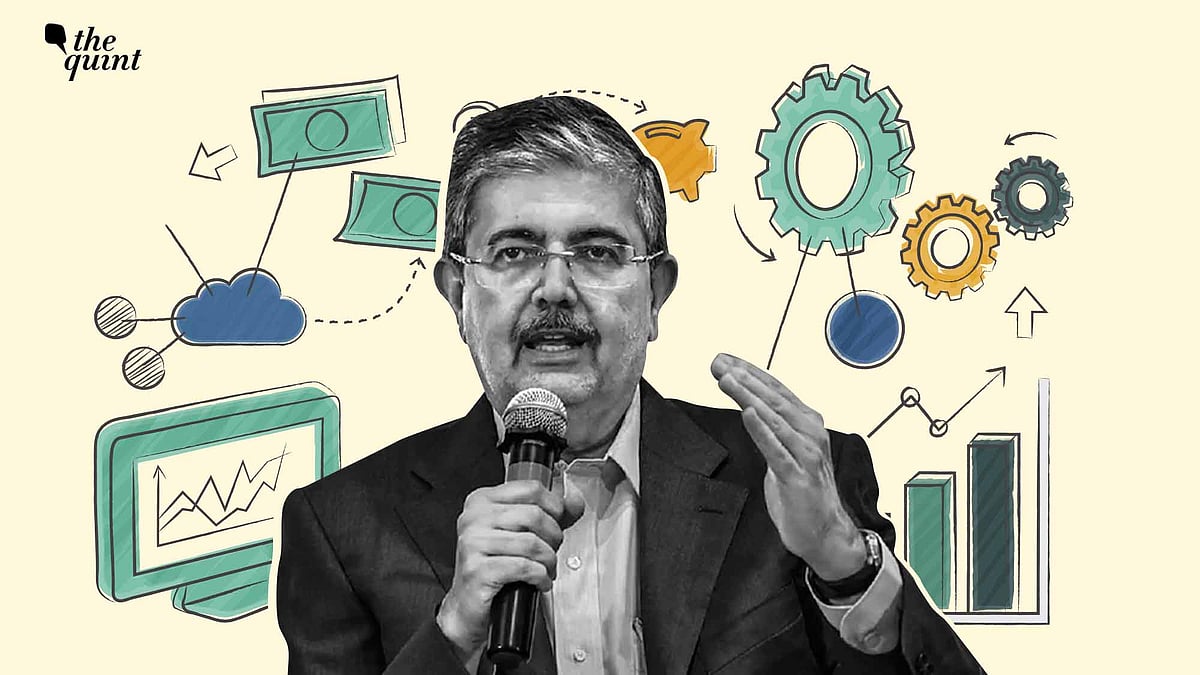
Uday Kotak is Right to Worry About GenZ, But They Aren't Gonna Listen to Him
For a GenZ heir, it is easier to park their excess cash in shares of companies, writes Aunindyo Chakravarty.

advertisement
Nearly 20 years ago, at the beginning of one of the biggest bull runs in global history, a top investor had told me that I was too much of a ‘Bong intellectual’ to make money in the markets.
“The stock markets are driven by animal spirits,” he had said. “People who buy stocks are inherently optimistic. They are willing to take risks. You are the exact opposite.”
Twenty years later, my bank balance shows that he was right.
I lacked the necessary ‘animal spirits.’ It is a term that was popularised by economist John Maynard Keynes, who used it to denote the “spontaneous urge to action, rather than inaction,” that drives human enterprise.
But, it seems, I am not the only one without an entrepreneurial mojo. If Uday Kotak is right, then GenZ in business families have also lost their animal spirits. Kotak says that he often meets young people “managing family offices and investments, trading in stock markets, allocating funds to mutual funds, and treating it as a full-time job.”
Ambition in the Time of Changing Capitalism
When Uday Kotak was their age, he had built a bank from scratch.
He wasn’t entirely self-made. He had enough connections to be funded by Anand Mahindra and get invited to Anil Ambani’s wedding. But Uday Kotak’s dad wasn’t a top tycoon. He used his innate entrepreneurial ability and his knack for finance to become India’s richest private banker. So, Kotak has reasons to feel dismayed by the lack of enterprise among young people around him.
The question, then, is why has this happened?
The lazy answer would be to say that this is what GenZ is about. They don’t want to work hard, and they don’t have perseverance.
When Kotak began dealing in financial services in the mid-1980s, finance capital was beginning its long march to take over the world economy. Governments were bringing down walls that stopped the easy flow of money across national borders and removing regulations.
When Finance Took Over the World Economy
In India, it was also the time when private players were, once again, allowed to operate freely in finance. Less than two decades earlier, the exact opposite had happened – Indira Gandhi had nationalised 14 large private banks.
By the time Kotak Mahindra Finance Ltd became a full-fledged bank, the great bull run of the early 2000s had taken off. It was the greatest period for finance of all kinds – regular commercial banks, investment banks, non-banking financial companies, brokerages, mutual funds, and private equity investors.
It was impossible not to be infected by the optimism of that period. Even a pessimistic Bong like me felt the immense surge of animal spirits around me. The professional-managerial ‘middle class’ rode on the ‘wealth-effect’ of higher salaries and bonuses to consume like never before.
Then came the Global Financial Crisis of 2008-09. It was the mother of all financial collapses, from which the world is yet to recover.
India, especially, has seen an absolute collapse of private investments since 2009-10. In the 14 years since then, the private money invested in completed projects has grown at just 3 percent per year. If you adjust for inflation, it has actually reduced. Compare that to the 14-year period before that, when such investments grew at an annual rate of 16 percent.
That’s 3 percent versus 16 percent.
How a Billionaire-Making System Now Limits Growth
The process that has caused that is, ironically, is the same one that made Uday Kotak a billionaire.
If people don’t buy things, then entrepreneurs have no reason to invest more to build bigger factories. The RBI’s survey shows that capacity utilisation has been stuck at around 75 percent for over a decade now. With so much capacity sitting idle, why should young entrepreneurs want to build the “real world” businesses that Uday Kotak wants?
On top of that, there has been significant consolidation in every industry. A few big companies now dominate the market in every sector. It is almost impossible for a new company to compete with large monopolies. That is yet another reason not to start another business.
Things are going to get even worse with US President Donald Trump taking the protectionist path to Make America Great Again. Not only is he shutting down the US economy to exporters, but he is also bullying countries – including India – to make it easier for American companies to sell their products abroad.
And, as every good finance guru will tell you, it is always good to diversify and distribute your risk. So, GenZ 'financial investors’ are creating portfolios of shares, mutual funds, bonds, and some amount of venture capital and private equity funding in startups.
This, whether Uday Kotak likes it or not, is the smart thing to do. In fact, GenZ tycoons are doing the only thing that can be done right now.
(The author was Senior Managing Editor, NDTV India & NDTV Profit. He tweets @Aunindyo2023. This is an opinion piece. The views expressed above are the author’s own. The Quint neither endorses nor is responsible for them.)
- Access to all paywalled content on site
- Ad-free experience across The Quint
- Early previews of our Special Projects
Published: undefined